Please register for courses directly on TXCPA's website
Identifying and Implementing the Proper Balance of Internal Controls
Total Credits: 2 including 2 Auditing- Technical
- Average Rating:
- 247
- Categories:
- Accounting and Auditing | Partner Produced
- Faculty:
- Lynn Fountain, CGMA, CRMA, MBA
- Course Levels:
- Intermediate
- Duration:
- 2 Hours
- License:
- Expires 90 day(s) after program date.
Description
Internal Controls (IC) are in place for a reason. They help maintain the control environment and establish efficient and effective processes. They also serve as a mitigation technique for identifying when processes have changed and when procedures need to be adjusted. In today’s business world, all personnel must understand the concept of internal control, how they should be utilized and their benefits.
The purpose and value of internal controls are often misunderstood and misapplied by management. Internal controls should be viewed as a value-oriented activity that assists the organization in the effective execution of its objectives. Properly designed and executed controls are the key to ensuring this view.
A previous course “The Manager’s Responsibility for Internal Control," addressed these concepts at a higher level. This course further explores the types of ICs, how they can be properly utilized and the cost benefit considerations for implementation.
Internal control is a process designed to provide reasonable assurance regarding the achievement of objectives in the following areas:
- Effectiveness and efficiency of operations
- Reliability of financial reporting
- Compliance with applicable laws and regulations
- Safeguarding assets
Basic Course Information
Learning Objectives- Explore basic concepts, myths and facts of Internal Controls (IC).
- Discover typical control types.
- Identify why controls fail.
- Identify a framework to develop the right balance of controls.
- Explore the differences between automated and manual controls and recognize the various testing processes
Major Subjects
- Introduction to identifying and implementing the proper balance of internal controls
- Concepts, myths and facts of internal controls
- Risks vs controls
- Typical control types
- Understanding controls and why they fail
- Framework for controls identification
Course Materials
| Important CPE Credit Information_READ BEFORE WEBCAST UPDATED (0.47 MB) | Available after Purchase | ||
| Identifying and Implementing Internal Controls_Slides_Handout (1.7 MB) | 39 Pages | Available after Purchase |
| Q&A Doc (13.1 KB) | Available after Purchase | ||
Faculty
Lynn Fountain, CGMA, CRMA, MBA Related Seminars and Products
Lynn Fountain has over 37 years of experience spanning public accounting, corporate accounting and consulting. 22 years of her experience has been working in the areas of internal and external auditing. She is a subject matter expert in multiple fields including internal audit, ethics, fraud evaluations, Sarbanes-Oxley, enterprise risk management, governance, financial management and compliance.
Ms. Fountain has held two Chief Audit Executive positions for international companies. In 2011, as the Chief Audit Executive for an international construction/ engineering firm, she was involved in the active investigation of a joint venture fraud. The investigation included work with the FBI and ultimately led to indictment of the perpetrators and recovery of $13M. Ms. Fountain is currently engaged in her own training and consulting business and is a regular trainer for the AICPA.
Ms. Fountain is the author of three separate technical books. “Raise the Red Flag – The Internal Auditors Guide to Fraud Evaluations” was published by the Institute of Internal Auditors Research Foundation. “Leading The Internal Audit Function” and “Ethics and The Internal Auditor Political Dilemma” were published by Taylor & Francis In addition,
Ms. Fountain has performed as an adjunct instructor for the School of Business for Grantham University and developed the first internal audit curriculum for the School of Business at the University of Kansas. Ms. Fountain obtained her BSBA from Pittsburg State University and her MBA from Washburn University in Kansas. She has her CGMA, CRMA credentials and CPA certificate (non-active).
Dates
|
Tue, Sep 23, 2025 - 1:00 PM to 2:40 PM CDT
|
|
Tue, Oct 21, 2025 - 5:00 PM to 6:40 PM CDT
|
|
Tue, Nov 04, 2025 - 12:00 PM to 1:40 PM CST
|
|
Tue, Dec 16, 2025 - 8:00 AM to 9:40 AM CST
|
Additional Info
Basic Course Information
Prerequisites NoneAdvanced Preparation None
Designed For CPAs in public practice, internal auditors, and those with oversight of internal controls in business and industry
Original Recording Date 11/06/2019
Yellow Book No
Course Developer MICPA
Date Added to Catalog 08/16/2019
Additional Information
Complaint Resolution Policy Please contact Anne Taylor for any complaints. anne.taylor@acpen.com, (972-377-8199).Official Registry Statement Business Professionals' Network, Inc. is registered with the National Association of State Boards of Accountancy (NASBA) as a sponsor of continuing professional education on the National Registry of CPE Sponsors. State boards of accountancy have final authority on the acceptance of individual courses for CPE credit. Complaints regarding registered sponsors may be submitted to the National Registry of CPE Sponsors through its website: www.nasbaregistry.org
Instructional Delivery Method Group Internet Based
Course Registration Requirements Online Registration
Refund/Cancellation Policy Please contact the ACPEN help desk 1-877-602-9877 or help@acpen.com if you wish to cancel your attendance for a previously purchased webcast and are requesting a refund or transfer.
Reviews
| 5 |
|
| 4 |
|
| 3 |
|
| 2 |
|
| 1 |
|


